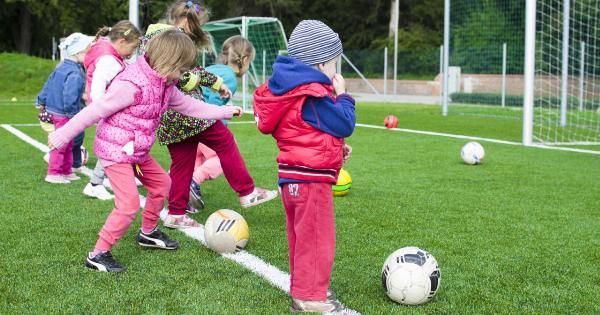As adults, it can be challenging to confront difficult situations and have difficult conversations. When it comes to children, the instinct to protect them from pain and discomfort often leads us to shield them from the truth.
However, experts argue that kids deserve the truth, no matter how difficult it may be. Honesty and transparency not only promote emotional resilience and trust but also equip children with the necessary skills to navigate life’s challenges.
In this article, we explore the importance of telling children the truth, even when it’s hard.
The Impact of Honesty on Emotional Resilience
Children are incredibly perceptive and can often sense when something is wrong, even if it is not explicitly communicated to them. When we withhold the truth from them, it can lead to confusion, anxiety, and an erosion of trust.
By being honest with kids, we validate their perceptions, emotions, and experiences, allowing them to build emotional resilience.
When children are aware of difficult situations, such as illness, divorce, or death in the family, acknowledging and discussing these realities becomes crucial.
While it may be challenging to find the appropriate words and tone, truthfulness helps children process their emotions in a healthy manner. It also sets the foundation for open communication and problem-solving, which are essential life skills.
Building Trust and Strengthening Relationships
Trust is the cornerstone of any healthy relationship, especially between parents and children. When we choose to be honest with kids, even in difficult situations, we build and strengthen trust bonds.
Children who grow up in an environment of trust feel secure, valued, and respected. They are more likely to approach their parents or guardians for support and guidance in times of need.
However, when children sense that they are being lied to or kept in the dark, trust can be shattered. They may feel isolated, confused, and may develop a fear of communication.
This can have long-lasting negative effects on their emotional well-being and can strain relationships not only with parents but also with other individuals in their lives.
Equipping Children with Coping Skills
Life is full of challenges, and shielding children from difficult truths deprives them of the opportunity to develop essential coping skills.
By exposing kids to the truth, we give them a chance to learn how to navigate difficult emotions, make sense of complex situations, and develop problem-solving skills. This empowers them to become more resilient individuals who are better equipped to handle future hardships.
For example, if a child loses a pet, telling them that the pet has gone to sleep and will never wake up may seem like an easy way to spare their feelings. However, this narrative can foster confusion and fear surrounding the concept of death.
Instead, explaining death as a natural part of life can help children develop a healthier understanding and coping mechanism for future losses.
Truth as a Foundation for Learning and Growth
Children are naturally curious and have an innate desire to understand the world around them. By providing them with honest information, we allow them to learn and grow based on reality rather than misconceptions.
For instance, when it comes to sensitive topics such as sex education, being truthful and age-appropriate in our explanations enables children to form a healthy understanding of their bodies, relationships, and boundaries.
By guiding them through these conversations, we help them make informed decisions and develop healthy relationships later in life.
The Role of Timing and Age-Appropriate Communication
While honesty is crucial, it is equally important to consider the child’s age and level of understanding when communicating difficult truths.
Tailoring the conversation to their developmental stage ensures that they can comprehend the information and process it in a way that is appropriate for their emotional and cognitive abilities.
The timing of these conversations is also crucial. Choosing the right moment when the child is most receptive and emotionally prepared can significantly impact their ability to cope and assimilate difficult truths.
Honesty as a Model for Integrity
By choosing to be honest with children, we not only foster trust and emotional growth, but we also serve as models for integrity. Children learn by observing and mirroring the behavior of the significant adults in their lives.
When they see us being honest and upfront with them, it teaches them the value of integrity and encourages them to do the same.
Furthermore, children exposed to truthfulness develop a strong sense of ethical judgment and are more likely to act in ways that align with their values and principles.
They understand the importance of honesty in maintaining healthy relationships and forming meaningful connections with others.
Addressing Difficult Truths with Compassion and Support
When it’s necessary to share difficult truths with children, it’s crucial to approach the conversation with compassion and provide them with adequate support.
Being present and available to answer questions, offer comfort, and validate their emotions can make a significant difference in how they process and cope with the situation.
Encouraging children to express their feelings, concerns, and fears helps them feel heard and understood. It is equally important to emphasize that difficult situations are not their fault and to provide reassurance of ongoing love and support.
The Long-Term Benefits of Honesty
While it may be tempting to shield children from difficult realities, the long-term benefits of honesty far outweigh the temporary discomfort.
By being truthful with children, we create an environment that fosters emotional resilience, trust, and healthy relationship dynamics. Equipping children with coping skills and problem-solving abilities prepares them for life’s challenges and enhances their overall well-being.
Ultimately, kids deserve the truth, no matter how difficult it may be. Honesty lays the foundation for healthier emotional development, stronger relationships, and an authentic understanding of the world.
By choosing transparency and compassion, we empower children to navigate life’s difficulties with confidence, empathy, and integrity.





























